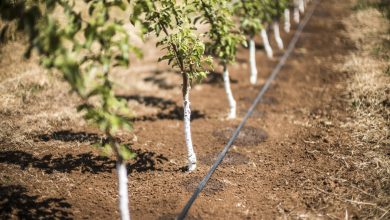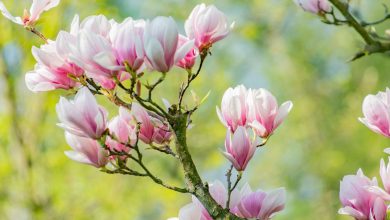Fertilize an Olive Tree: What Components Do You Need? How to do it?
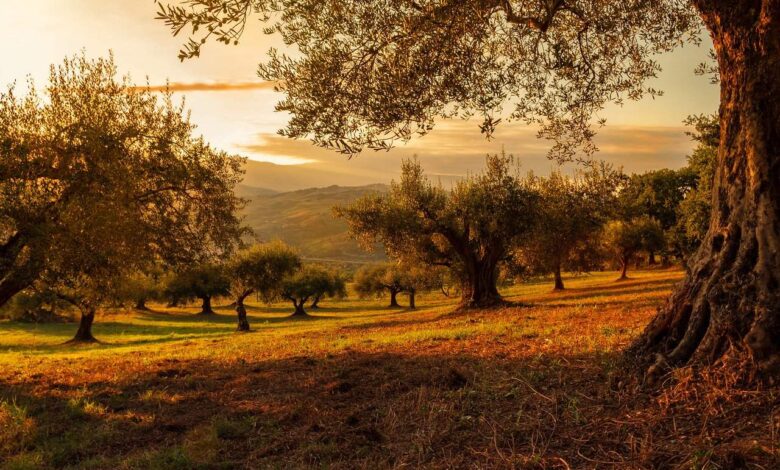
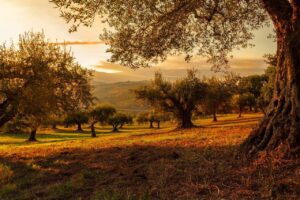 The olive tree is a fruit tree that allows the production of olive oil and is not difficult to grow , although it is important to know how to pay it.
The olive tree is a fruit tree that allows the production of olive oil and is not difficult to grow , although it is important to know how to pay it.
Although this tree does not grow very large, it usually tolerates varied climatic conditions, with the wind being the one that can cause the most damage.
In this sense and in order to let you know how to take care of this tree, we will talk a little about its compost and the correct way to use it.
Why fertilize an olive tree?
The olive tree is not a demanding tree with the soil, giving good results both in irrigated and dry land.
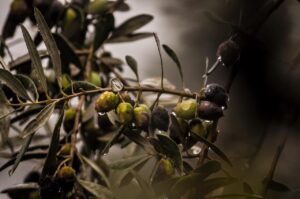 It adapts to different types of soils, however it needs a good amount of water. It is important not to forget that like all trees, stagnant water hurts you a lot. Although it is considered a somewhat resistant crop .
It adapts to different types of soils, however it needs a good amount of water. It is important not to forget that like all trees, stagnant water hurts you a lot. Although it is considered a somewhat resistant crop .
Since this plant has a good amount of nutritional requirements, fertilizing it becomes mandatory for your health.
This also has a great influence on the reproduction of the olive tree, since it will produce fruits of greater or lesser quality depending on the care provided.
It is important to consider that it cannot be paid with any type of material , since it has specially defined the nutrients it needs.
That is why care must be taken and protected from any deficit that may arise.
To know more: Pests and Diseases of the Olive Tree
What does the olive tree need in terms of nutrients?
In general, this tree requires the presence of nitrogen , phosphorus , boron, iron and calcium.
All of them ensure that it can have an optimal and adequate development for its production.
| Plantation density | Average production per tree | You (fert / ha) | Subscriber (kg / ha) |
| 150 trees / ha dry | 15 to 30kg | N 90 – P2O5 30 – K2O 90 |
|
| 150 trees / ha dry | 30 to 40kg | N 120 – P2O5 45 – K2O 120 |
|
| 200 trees / ha dry | 40 to 50kg | N 180 – P2O5 80 – K2O 200 |
|
.
Nitrogen
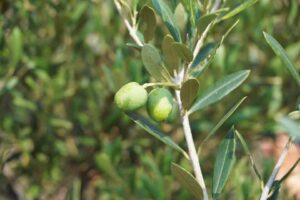 In the case of nitrogen , it is known that it allows the acceleration of vegetative activity, which encourages the correct development of the plant .
In the case of nitrogen , it is known that it allows the acceleration of vegetative activity, which encourages the correct development of the plant .
Likewise, it facilitates that it has a greater capacity for assimilation of any other element , directly influencing its production.
This compound is not very stable in soils, making it necessary to keep it in mind when fertilizing and fertilizing the plants.
Nitrogen is a fundamental nutrient for the cultivation of olive trees due to its effect on the vegetation and the production of olives. The olive tree usually acquires nitrogen through its absorption in the soil, either in mineral or organic form.
Nitrogen also accelerates vegetative life and plant development , increases chlorophyll, and intensifies the green color of leaves. It also helps assimilate other important elements.
The match
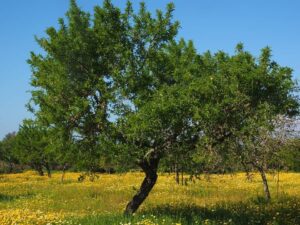 Regarding phosphorus, it can be said that it favors the acceleration of ripening, flowering and fruit setting.
Regarding phosphorus, it can be said that it favors the acceleration of ripening, flowering and fruit setting.
The main advantage after its use is that it allows the conditions to be improved for each of these processes to be carried out.
However, it should be borne in mind that the response to this compound begins in the plant one year after fertilization.
Boron
The boron is what is known as a micronutrient of the olive tree, although it has great importance for the development of the tree and its fruit.
It is essential to know how to fertilize olive trees properly, since with the deficit of boron in limestone and dry soils you can have problems.
The consequences of the lack of this micronutrient are problems in flowering and fruit set, as well as an increase in the number of misshapen fruits.
The iron
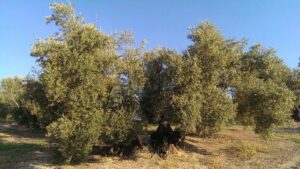 As for iron , its absence can cause iron chlorosis problems , preventing the health of the plant from being appropriate for its production.
As for iron , its absence can cause iron chlorosis problems , preventing the health of the plant from being appropriate for its production.
Magnesium
One of the most important trace elements in olive tree compost is magnesium. We can detect its lack by looking at the sickly and / or stunted tree.
This deficiency can be corrected by applying magnesium sulfate .
The calcium
Last, but not least, there is calcium , an element that is usually generated by limestone soils where olive trees are located.
However, it should be considered that although this component is found in the soil, it does not always reach the plant as it should be.
For this reason, it is recommended that the compost has the presence of calcium in an adequate quantity.
What are the main components of compost for the olive tree?
In addition, the needs of the plant must be taken into account to add micronutrients.
These needs will remain defined by the deficiencies you may have.
What deficiencies can the olive tree have and how to detect them?
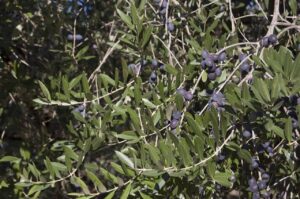 There are many deficiencies that an olive tree can have, all with a series of characteristics that allow them to be detected and treated in time.
There are many deficiencies that an olive tree can have, all with a series of characteristics that allow them to be detected and treated in time.
To be able to know some of these deficiencies it is essential to pay attention to the details .
Nitrogen deficiency
For example, a nitrogen deficiency (which is common) occurs with development problems of the plant, causing it to have rickets.
Similarly, the leaves are small and deformed, with the possible appearance of red spots, mostly on old leaves.
Phosphorus deficiency
Other deficiencies such as phosphorus can cause developmental damage, although not as marked as in the case of nitrogen.
How to make a compost compost for olive tree step by step?
 In general, for the health of olive trees, the use of prefabricated organic compost is recommended, allowing good nutrition.
In general, for the health of olive trees, the use of prefabricated organic compost is recommended, allowing good nutrition.
This is because the required components cannot be freely sourced .
It should be borne in mind that the correct proportion of nutrients will make the olive trees much healthier and will improve their production.
It is also necessary to add that manure and industrialized fertilizers tend to be very fickle and cause the quality of the crop to be lost.
Some natural components that greatly favor the compost of olive trees:
- Fallen leaves from other trees.
- Ash from burning remains (non-chemical materials, but natural).
- organic matter such as manure from birds , as well as from horses, donkeys, etc. (although this must be very decomposed).
Olive trees are trees that need good conditions to be able to maintain an optimal and abundant production .
For this reason, its care is essential from the moment the land is selected until it begins to produce fruits.
And as it is the natural condition of all plants, knowing how to fertilize olive trees effectively and efficiently according to the stage of development in which it is.
Where to buy compost for olive trees?
The most advisable thing is that you go to a nursery or a specialized store in your area. However, if you do not have access to any, we could recommend these products on Amazon:

Ecom Garden Ecological Biostimulant Fertilizer. 1 liter. Natural invigorator for indoor and outdoor plants, orchards, fruit trees, hedges and garden. Makes up to 33 liters of preparation. New Label
- Biostimulant and protective fertilizer, 100% natural. 1 Liter Container Concentrate; Its cost is 0.6 euros per liter of …
- Ecological. Made exclusively with aromatic plants. Non-toxic to people or pets
- It gives vigor and color to your garden and vegetable garden plants. Very pleasant smell. 1 Liter Concentrate. Foliar application, …
- Protects and cures from fungi and insect pests. Very effective for spider mites, aphids, worms and mealybugs. Fight the …
Last update 2021-06-10 / Affiliate Links / API Images for Affiliates

FERTIBERIA 3Kg granulated fertilizer for olive trees
- Granulated fertilizer formulated for the nutrition of olive trees, as well as holm oaks, oaks, palms and almond trees among others.
- It improves the fruiting, quantity and quality of the olive, providing great vigor and resistance against cold, drought, …
Last update on 2021-06-09 / Affiliate Links / API Images for Affiliates

CULTIVERS Special Fertilizer for Bonsai 5 kg. 100% Organic and Natural Origin Fertilizer, Slow Release Granulated and controlled with NPK 8-1-5 + 74% MO and Ac. Humic
- Slow and controlled release microgranule fertilizer
- Controlled growth of new internodes
- Ecological organic fertilizer with a high concentration of npk
- Organic fertilizer from high quality plant material, obtained through controlled fermentation, for a …
Last update 2021-06-10 / Affiliate Links / API Images for Affiliates
Sale

The Expert Advice Citrus Organico Organomineral fertilizer specific for citrus, 5 kg
- NPK 6-5-5 contains a high percentage of natural organic substances such as cornuña, hops and neem panel.
- Neem panel is a substance of plant origin that restores the fertility of exploited territories and favors the …
- Regularly distributed throughout the year, it guarantees complete nutrition and optimal plant development.
- Fertilization period: from March to November; Frequency: every 30-40 days; How to use: shoot, bury lightly and …
Last update 2021-06-10 / Affiliate Links / API Images for Affiliates
Sale

Suinga 500 KG ORGANIC FERTILIZER WORM Humus, 25 Kg bags – 41 liters. Suitable for organic farming
- Organic fertilizer suitable for Ecological Agriculture obtained from earthworm droppings.
- They help the growth and development of all types of plants, improving the soil and caring for the environment.
- Vermicompost is a product of organic origin that results from the transformation of animal manure carried out …
- Serves as a substrate for seedlings (we recommend mixing with coconut fiber)
Last update 2021-06-10 / Affiliate Links / API Images for Affiliates

